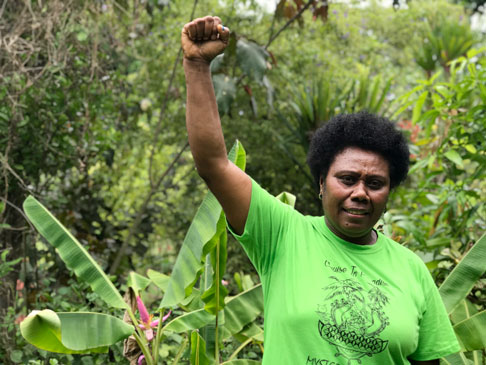Non-government organisations (NGOs)
Gender Responsive Alternatives for Climate Change is a collaborative project between ActionAid Australia, The Huairou Commission and Monash University. The project responds to the global gendered impacts of climate change. Over two years – between July 2017 and June 2019 – 7,000 women are being empowered to take collective action in preparing for and responding to climate change and related crises in Cambodia, Kenya, and Vanuatu.
Recognising intersecting inequalities, this project supports diverse women's engagement in relevant policy, planning and decision-making processes at sub-national, national and international levels, working in coalitions with other NGOs and allies. The project supports sharing of good practice and innovation through cross-country learning and skill-building among community women.
Melia David is a member of the 'Women I Tok Tok Tugeta' ('Woman talk, talk together' in Ni-Vanuatu) forum in Vanuatu, which has developed through this program. These forums bring women together to discuss their rights, particularly in relation to disasters.
"Livelihood opportunities should focus on women to ensure that all people have the opportunity to support their families, especially in times of disaster," says Melia.
Melia knows first-hand that disasters create severe impacts for her community, including forced displacement, food insecurity and violations of human rights; all of which disproportionately impact women and others experiencing poverty, injustice and exclusion. According to UNDP (2013), women and children are 14 times more likely to die in a disaster than men.
This program aims to advance gender equality by targeting unequal power relations in decision making in climate-change and crisis planning and response at all levels. In Vanuatu, members of the women's forums are now engaging in national-level dialogues on climate change and links are being made between women at the local level and national level institutions.

